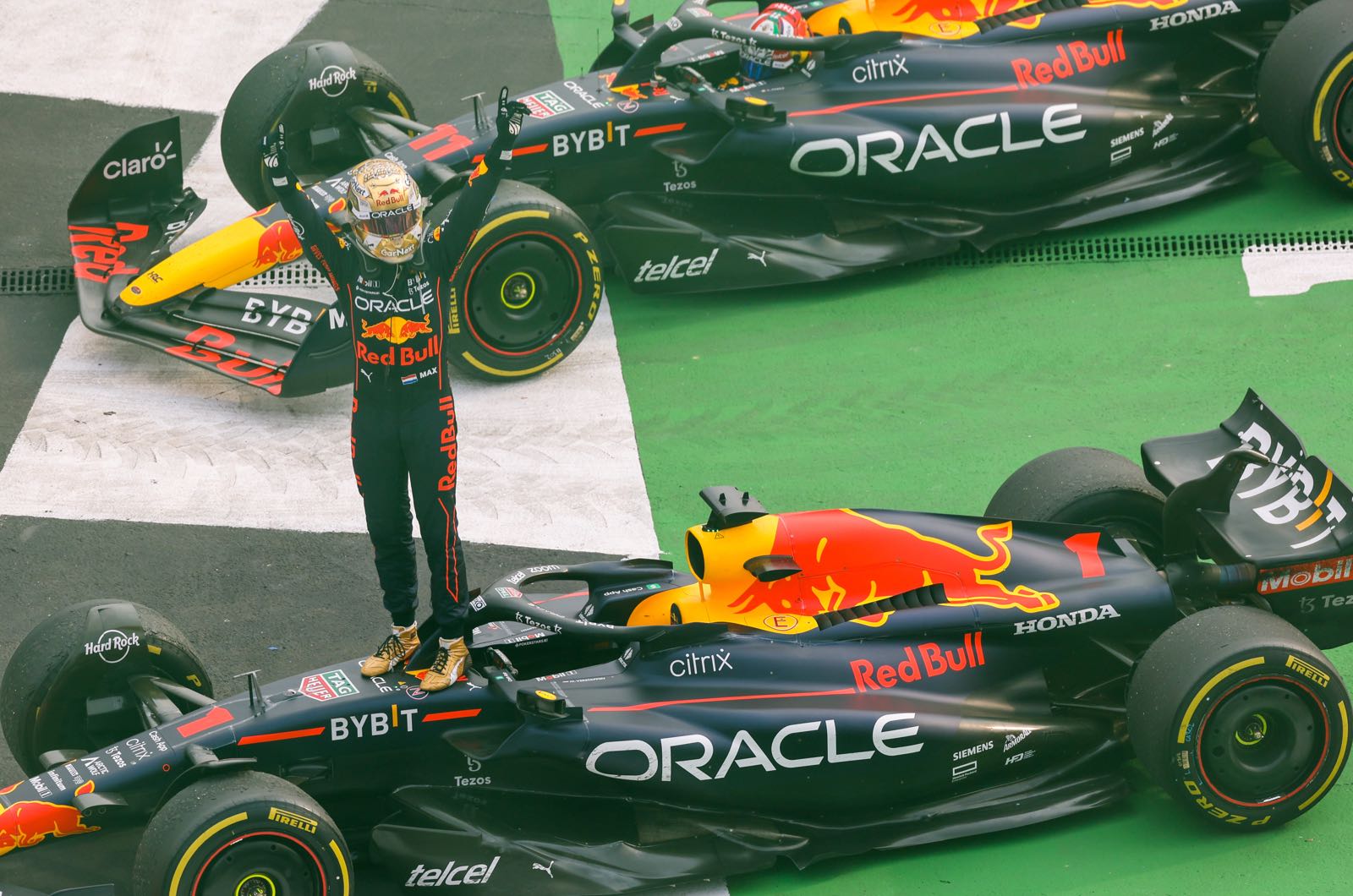Is Red Bull Boycott: The Buzz Behind The Controversy
Red Bull has been a household name for decades, but lately, whispers of a potential boycott have started buzzing around. If you're scratching your head wondering what's going on, don't worry—you're not alone. The energy drink giant has faced its fair share of controversies over the years, and now people are asking if it's time to take a stand. So, is Red Bull boycott a real thing? Let's dive in and find out.
Energy drinks have become a staple in modern life, whether you're cramming for exams, pulling an all-nighter at work, or just trying to keep up with life's chaos. Red Bull, in particular, has built an empire around its signature slogan, "Red Bull gives you wings." But as the brand grows, so do the questions about its practices and ethics. Is it time to reconsider your loyalty to this iconic drink?
Before we get into the nitty-gritty, let's set the stage. This isn't just about Red Bull as a product—it's about the broader implications of supporting a company whose actions might not align with your values. Stick around because we're about to break it all down for you in a way that's easy to digest and action-packed.
Read also:What Does Obsidian Kingdom Mean Unveiling The Mysteries Of The Name
Understanding the Red Bull Boycott Movement
So, what exactly is this Red Bull boycott all about? To put it simply, it's a movement driven by consumers who are unhappy with certain aspects of the company's business practices. Whether it's environmental concerns, labor issues, or even marketing strategies, people are starting to question if Red Bull is really the "good guy" they've always thought it was.
Why Are People Talking About a Boycott?
There are several reasons why Red Bull has become a target for boycott discussions. Let's break it down:
- Environmental Impact: Red Bull has faced criticism for its use of non-recyclable materials in packaging and its contribution to plastic pollution.
- Health Concerns: Some critics argue that the high caffeine and sugar content in Red Bull can lead to health issues, especially among young consumers.
- Marketing Tactics: The brand's aggressive marketing strategies, particularly targeting younger audiences, have raised eyebrows among health advocates.
These are just a few of the reasons why people are starting to question their loyalty to Red Bull. But is a boycott the answer? Let's explore further.
Red Bull Boycott: A Historical Perspective
Red Bull hasn't always been the center of controversy. In fact, the brand started as a simple idea by Austrian entrepreneur Dietrich Mateschitz in the 1980s. Over the years, it has grown into a global powerhouse, but with growth comes scrutiny. Let's take a trip down memory lane to see how we got here.
Key Moments in Red Bull's Controversial History
Here are a few notable moments that have contributed to the current conversation:
- 2009: Red Bull was banned in several countries due to concerns about its caffeine content.
- 2014: The company faced lawsuits over misleading health claims in its advertising.
- 2020: Environmental activists began targeting Red Bull for its use of single-use plastics.
Each of these moments has added fuel to the fire, leading to increased calls for a boycott. But what does the data say?
Read also:British Airways Flight Nowhere The Experience That Takes You Everywhere
The Data Behind Red Bull's Impact
When it comes to making informed decisions, data is king. Here's a look at some of the numbers that might surprise you:
- Red Bull produces over 7 billion cans annually, contributing significantly to global plastic waste.
- A single can of Red Bull contains approximately 80mg of caffeine, which is roughly equivalent to a cup of coffee.
- Studies have shown that excessive consumption of energy drinks can lead to increased heart rate and blood pressure.
These stats paint a clear picture of Red Bull's impact, both positive and negative. But how does this translate to real-world action?
Is a Red Bull Boycott Effective?
Boycotts can be a powerful tool for change, but they're not without their challenges. For one, Red Bull is a massive corporation with deep pockets, meaning a boycott might not have the immediate impact some hope for. However, history has shown that consumer pressure can lead to significant changes in corporate behavior.
Examples of Successful Boycotts
Take, for example, the Nestlé boycott in the 1970s, which led to the company changing its marketing practices for infant formula. Or the more recent #DeleteUber movement, which resulted in significant public relations damage for the ride-sharing giant. These examples prove that when enough people come together, change is possible.
Alternatives to Red Bull
If you're considering joining the Red Bull boycott, you might be wondering what alternatives are out there. Fortunately, the market is full of options that cater to different preferences and values:
- Organic Energy Drinks: Brands like Guayaki and RUNA offer organic, fair-trade options that are better for both you and the planet.
- Coffee-Based Alternatives: For those who prefer a more natural energy boost, cold brew coffee or matcha tea can be excellent choices.
- DIY Energy Drinks: Making your own energy drink at home allows you to control the ingredients and avoid unnecessary additives.
By exploring these alternatives, you can make a conscious choice that aligns with your values.
The Role of Social Media in the Boycott
In today's digital age, social media plays a crucial role in shaping consumer behavior. Platforms like Twitter, Instagram, and TikTok have become hotbeds for discussions about corporate responsibility and ethical consumption. Hashtags like #BoycottRedBull and #SustainableChoices have gained traction, highlighting the power of online communities to drive change.
How You Can Get Involved
If you're passionate about the Red Bull boycott, here are a few ways to get involved:
- Share your thoughts on social media using relevant hashtags.
- Join online forums and groups dedicated to ethical consumption.
- Spread awareness by talking to friends and family about the issues.
Your voice matters, and together, we can create a movement that demands better from the companies we support.
Red Bull's Response to the Boycott
Of course, Red Bull isn't sitting idly by while all this is happening. The company has made several efforts to address the concerns raised by critics:
- Investing in sustainable packaging solutions.
- Launching initiatives to promote responsible consumption.
- Engaging with environmental organizations to find ways to reduce their carbon footprint.
While these steps are commendable, many argue that they don't go far enough. The question remains: Is Red Bull doing enough to address the root causes of the boycott?
The Future of Red Bull and Consumer Choices
As we look to the future, one thing is clear: consumer choices have the power to shape the direction of companies like Red Bull. Whether through boycotts, supporting alternatives, or engaging in dialogue, every action we take sends a message about what we value as a society.
What Can You Do?
Here are a few actionable steps you can take:
- Educate yourself about the issues surrounding Red Bull and other energy drink brands.
- Make informed choices about the products you consume.
- Support companies that align with your values and encourage others to do the same.
Remember, the power is in your hands. By making conscious choices, you can help create a world that reflects your ideals.
Conclusion: Is Red Bull Boycott the Right Move?
In conclusion, the Red Bull boycott is more than just a trend—it's a conversation about ethics, responsibility, and the impact of our choices. While the decision to boycott is personal, it's important to consider the broader implications of supporting a company whose practices may not align with your values.
We invite you to join the conversation by leaving a comment below or sharing this article with your network. Together, we can make a difference. So, is Red Bull boycott the right move for you? That's a question only you can answer.
Table of Contents
- Understanding the Red Bull Boycott Movement
- Red Bull Boycott: A Historical Perspective
- The Data Behind Red Bull's Impact
- Is a Red Bull Boycott Effective?
- Alternatives to Red Bull
- The Role of Social Media in the Boycott
- Red Bull's Response to the Boycott
- The Future of Red Bull and Consumer Choices
- Conclusion: Is Red Bull Boycott the Right Move?


